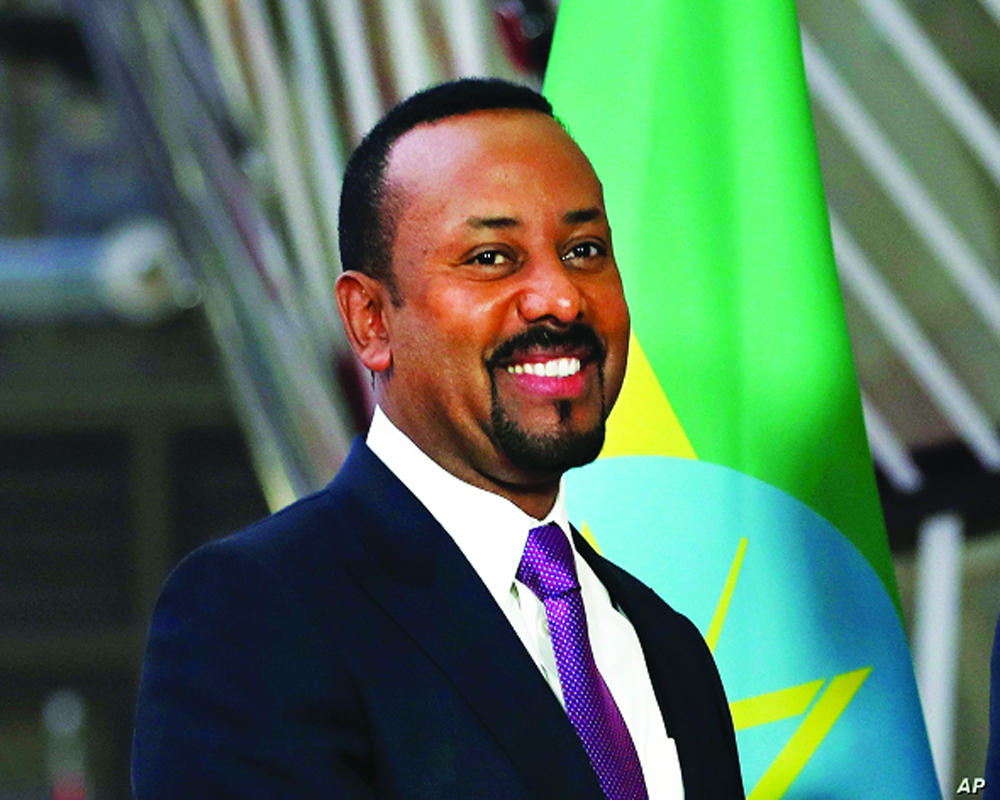Ethiopia can survive losing Tigray, but the wholesale disintegration of Africa's second-biggest country would be an almost limitless disaster
Most analysts thought it would take a year or two of guerilla war for the rebels in Tigray to drive Ethiopian federal forces out of their state, but it has only taken eight months. “The capital of Tigray, Mekelle, is under our control,” Getachew Reda, spokesperson for the Tigray People’s Liberation Front (TPLF), told Reuters on satellite phone on Monday.
The Ethiopian government, scrambling to disguise its defeat, immediately declared a “unilateral ceasefire” in the rebel state until September, ostensibly to allow farmers to plant their crops, but nobody was fooled. Tigray is gone, and other states may follow. This could even be the first act in the disintegration of the old Ethiopian empire.
Ethiopia is now officially a federal republic, but its borders are still those of the Christian-ruled multi-national empire that was built by Amhara conquerors in the late 19th and early 20th centuries. Four of its 80-odd languages have more than 5 million speakers each, and one-third of the population is Muslim.
The chief task of any Ethiopian government has always been to hold this wild mixture of ethnic and religious groups together, and force or the threat of force has always played a big role in that task. Until 2018, when a relatively young politician called Abiy Ahmed was chosen as prime minister.
He was chosen above all because, although he was an Oromo, as a very young man in 1991 he fought in the overwhelmingly Tigrayan army that overthrow the Derg, the brutal Communist regime that had oppressed Ethiopian since 1977. So he was trusted by the Tigrayans.
This was crucial, because he was really chosen as prime minister to pry the fingers of the Tigrayans from the levers of power without starting a civil war.
Tigrayans are only seven million of Ethiopia’s 115 million people, but because they did the heavy lifting in ousting the Derg they totally dominated the ‘federal’ government for the subsequent three decades. The Tigrayan elite had become both arrogant and corrupt, and everybody else knew their time was up. Maybe Abiy could persuade them to go peacefully.
It was worth a try, but it's not clear that Abiy ever believed that himself. His ‘peace’ deal with Eritrea after twenty years of hot and cold war won him the Nobel Prize, but it also enabled him to make an alliance with Eritrea against the state of Tigray if he needed to.
The Tigrayans were predictably unhappy about being evicted from power in Ethiopia. The leaders of the TPLF gradually withdrew from Addis Ababa and concentrated in their own state, effectively ceasing to cooperate with the federal government.
When Abiy postponed national elections last year because of Covid, the TPLF went ahead and held state elections in Tigray anyway, clearly seeking democratic legitimacy for an imminent secession. The trigger for the outbreak of actual fighting last November is disputed, but Abiy activated his secret alliance with Eritrea and the two jointly invaded Tigray.
It looked like a walk-over, and by the end of November Abiy declared that the fighting was over. But it was just beginning: the TPLF had decided to skip a conventional defence where Ethiopia’s tanks and planes had the advantage, and go straight to the guerilla warfare that it excelled in. Ethiopia held the towns, and the TPLF held the rest.
There was an almost complete federal blockade on news out of Tigray in the following months, except for occasional reports of massacres by Ethiopian or Eritrean troops. The real war was being fought silently in the back country, but the smart money was on the Tigrayans.
Then suddenly last Monday the TPLF was back in the capital, Mekelle, having chased the puppet administration out, and the war was over. Abiy's troops are pulling out, the Eritreans are apparently going home, and Tigray is to all intents and purposes independent.
So now Abiy has a new job: to prevent the rot from spreading. There are powerful separatist forces in other states of Ethiopia too, many people are very unhappy at the federal government’s conduct of the recent election, and Tigray’s example could be infectious.
Ethiopia can survive losing Tigray, but the wholesale disintegration of Africa’s second-biggest country would be an almost limitless disaster. Abiy’s blunders are as much to blame for this dreadful situation as the obdurate and self-centred leadership of Tigray, but he is probably now the only man who can hold the rest of the country together. If he’s lucky.
(Gwynne Dyer’s new book is 'Growing Pains: The Future of Democracy (and Work)’. The views expressed are personal.)


























